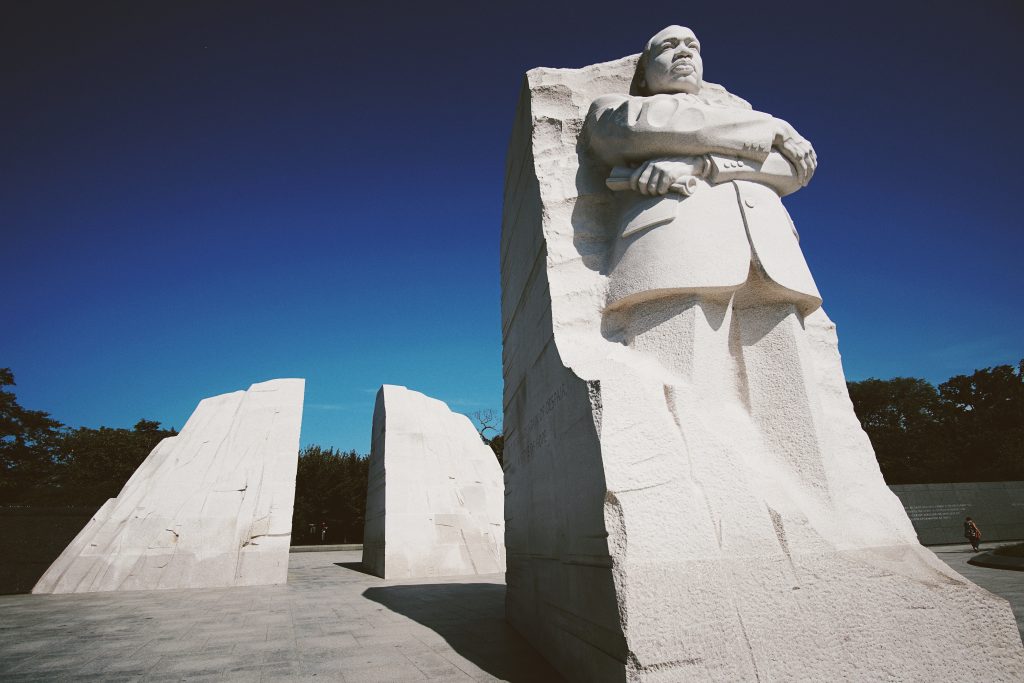This content is being reviewed in light of recent changes to federal guidance.
Four lesser known speeches by Dr. King

Today we honor the life and legacy of Dr. Martin Luther King Jr. who was a civil rights leader and minister. Dr. King ’s work to eliminate racial segregation was abruptly ended when he was assassinated on April 4, 1968, on the balcony of Lorraine Motel in Memphis, Tennessee. Although his legacy is often remembered with his famous “I Have A Dream” speech, here are four of Dr. King’s lesser known speeches to listen to commemorate his legacy:
1.) “Our God Is Marching On” Selma, Alabama: March 25, 1965
At the conclusion of the Selma to Montgomery march in Alabama, Dr. King gave a speech to reassure protestors that their work wasn’t in vain. Throughout the speech, King praises the strength of the protestors for refusing to give up the fight for voting rights in the South. King also makes the valid point that denying Black people in the South the right to vote is inherent to and perpetuates the system of racial segregation.
The previous point leads to the overall theme of the speech: the march to end racial segregation doesn’t end in Montgomery, Alabama, because there’s more work to be done (hence, the name of the speech). King ends the speech by encouraging the crowd that the fight won’t be for very long because God is on their side.
2.) “Beyond Vietnam: A Time to Break Silence”: Riverside Church in New York City: April 4, 1967
King was no stranger to sharing his anti-war sentiments. He first publicly expressed his disdain for the Vietnam War in 1965 when he talked about the hypocrisy of America using a lot of resources for sending troops to Vietnam while doing nothing to help citizens in Selma, Alabama receive the right to vote. King expresses the same hypocrisy with this speech as he questions the motives of the American government. Why cause violence in a different country while Black people are battling to become citizens in their own country? That’s the question that becomes the main theme of King’s speech.
Throughout the speech, King also challenged the method in which America chose to fight the war through incessant violence. He insists that nothing would be resolved because harmony could only be achieved through radical nonviolence.
3.) “The Other America” Stanford University: April 14, 1967
This is the first nor the last time that King gave this speech about economic justice and racial equality. He performed different versions of it in 1967 and 1968. However, King maintains the common theme of the speech by emphasizing how there are two different Americas that exist in society.
King begins the speech by defining the two Americas. One is described as the land of opportunity, while the other continues to struggle because of the lack thereof. King specifically mentions that although the latter America is filled with groups like American Indians, Hispanic/Latinx and other minorities, Kings makes it clear that Black people are the largest demographic in that “other America”. In one of King’s most radical speeches, King expresses the many obstacles that Black people have had to endure and motivates the audience to not only be aware of those injustices but thoroughly understand how those injustices do not exist for white America. Toward the end of the speech, King explicitly mentions that the problems that exist for Black America will ultimately stunt the advancement of this nation, and he urges white America to help eliminate those issues.
4.) “I’ve Been to the Mountaintop” Memphis, Tennessee: April 3, 1968
Braving a slight fever and sore throat, King spoke at the Mason Temple in Memphis, Tennessee to striking sanitation workers in what would be his final speech. King was a strong supporter of the sanitation workers movement in Memphis and he even attempted to plan a march for the movement the month before his speech. However, them march was called off due to violence. With his speech, King had hoped to reinvigorate the workers and promote nonviolence for the movement.
King starts off his speech expressing his gratitude for being alive in such difficult times. However, in a very prophetic tone, King also expresses how unafraid is he is to die because he “did God’s will”. Throughout the speech, King assures the audience that he’s content with the work he had done while inspiring the crowd to continue to fighting the injustice in Memphis as if he knows he won’t be alive for a long time. King was assassinated the next day, on April 4, on the balcony of Memphis’ Lorraine Motel.